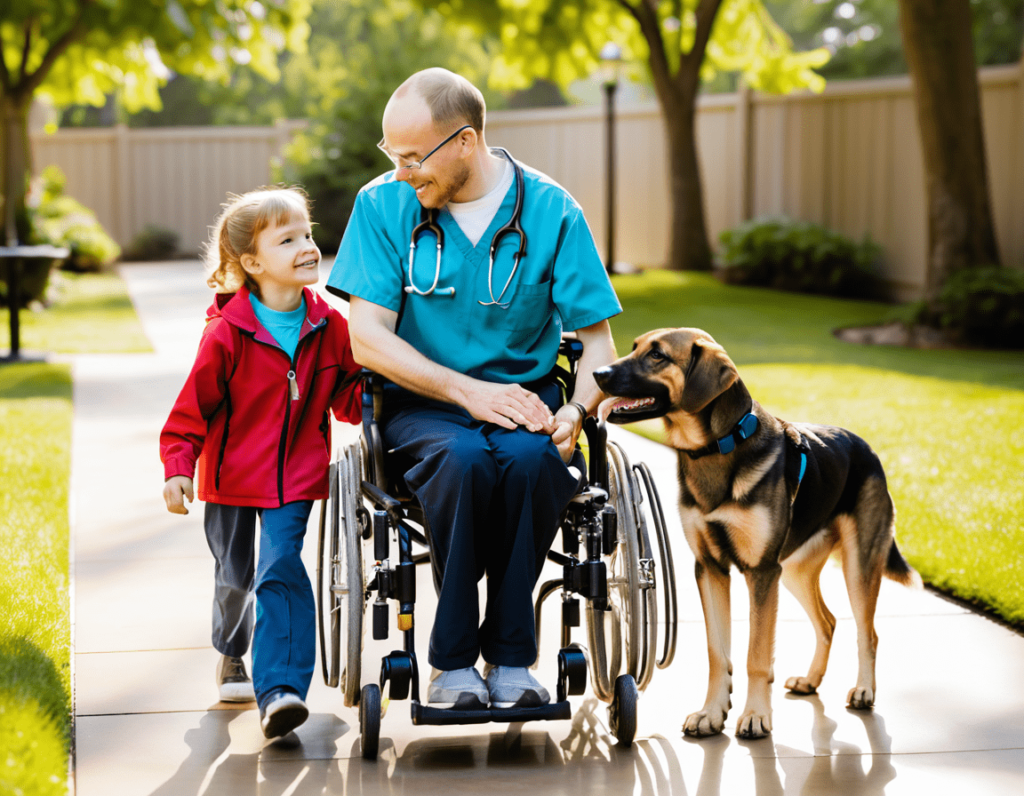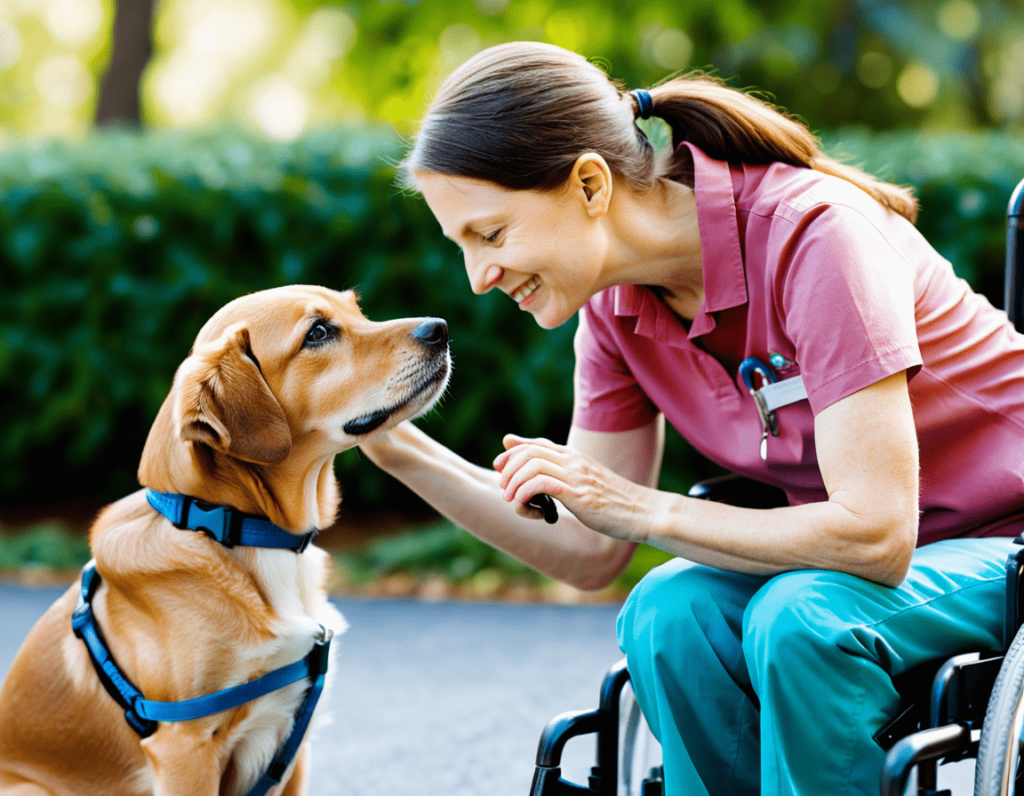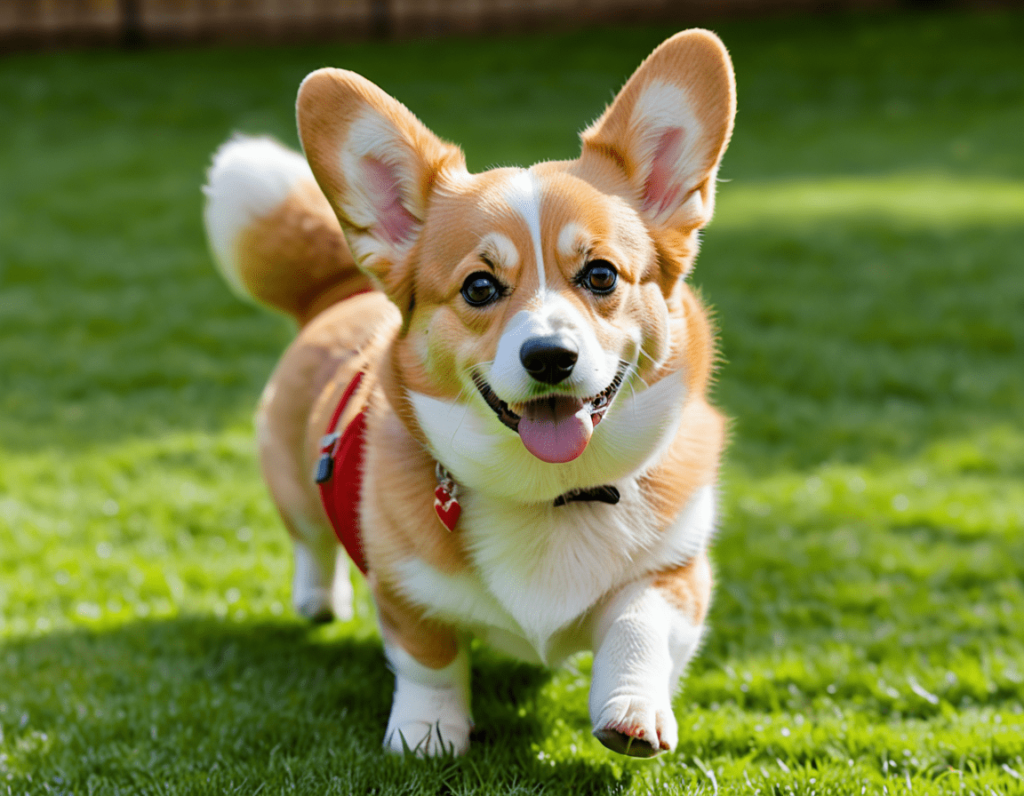
Special Needs Dogs and Their Care: Loving the Uniquely Abled
When it comes to our furry friends, every dog has its own unique quirks, but some dogs face special challenges that require a little extra love and care. Special needs dogs can include those with physical disabilities, behavioral issues, or health conditions. Caring for them might sound daunting, but it can also be one of the most rewarding experiences of your life! Let’s dig into the wonderful world of special needs dogs and how to give them the best care possible—plus a sprinkle of humor because who doesn’t love a good laugh?
Understanding Special Needs Dogs
First, let’s clarify what we mean by “special needs.” This term encompasses a wide range of conditions. It could be a dog who is deaf or blind, one with mobility challenges, or even a pup who struggles with anxiety. Just like people, each dog is an individual, and their needs can vary significantly. Think of them as the quirky, lovable characters of the canine world—each with their own story to tell!
Why Choose a Special Needs Dog?
Many people might wonder why they should consider adopting a special needs dog. Here are a few reasons that might just make you grab your adoption papers:
- Unconditional Love: Special needs dogs often have a special appreciation for their caregivers. They might just be extra grateful for the love and care they receive, making for some heartwarming moments.
- Life Lessons: Caring for a special needs dog can teach you invaluable lessons in patience, compassion, and resilience. They remind us that love knows no bounds.
- Endless Joy: These dogs have big personalities! You’ll find plenty of humor in their antics—whether it’s a blind dog mastering the art of finding the treat jar or a three-legged pup zooming around the yard like a pro.
Caring for Special Needs Dogs
Caring for special needs dogs can require some adjustments, but with the right knowledge and tools, you can provide them with a fulfilling life. Here are some tips to help you get started:
1. Create a Safe Space
For many special needs dogs, safety is a priority. If your dog has mobility issues or is blind, make sure your home is free of obstacles. Think of it as creating a doggy version of a safe bubble! Use baby gates if needed, and keep their favorite toys in easily accessible spots. Remember, your dog doesn’t need to be an Olympic athlete; they just need a clear path to their food bowl and comfy bed!
2. Tailor Their Exercise Routine
Every dog needs exercise, but special needs dogs may require a more tailored approach. For a dog with mobility challenges, short, frequent walks might be better than long hikes. You can also engage them in mentally stimulating activities like puzzle toys or scent games. Remember, even a leisurely stroll can be an adventure! Plus, you’ll both get some fresh air—bonus!
3. Proper Nutrition
A healthy diet is crucial for all dogs, but especially for those with special needs. Consult with your veterinarian to determine the best diet for your dog’s specific condition. Special food can help manage health issues or maintain a healthy weight, which is especially important for dogs with mobility challenges. And let’s face it, a healthy pup is a happy pup!
4. Regular Vet Check-Ups
Regular vet visits are essential for special needs dogs. Keep an eye on their health and any changes in behavior, as they may indicate a need for adjustments in their care. Your vet can provide guidance on medications, therapies, or alternative treatments to help your pup thrive. And hey, think of it as an opportunity for some bonding time—you can even bribe your dog with treats (not that they need much convincing)!
5. Patience and Understanding
Special needs dogs may require more patience and understanding than others. They might take longer to learn commands or may struggle with social interactions. Be prepared for some trial and error—after all, training a dog can be a bit like teaching your cat to fetch (spoiler: it rarely works out). Celebrate small victories and remember that progress is progress, no matter how slow!
6. Socialization and Training
While socialization can be challenging for special needs dogs, it’s not impossible. Gradual exposure to new environments, people, and other pets can help them feel more comfortable. Consider working with a professional trainer experienced with special needs dogs. They can help create a customized training plan that suits your dog’s needs and abilities. And trust me, the more well-rounded your pup is, the more entertaining their social interactions will be!

Conclusion: Loving Our Special Pups
Caring for a special needs dog is a journey filled with love, laughter, and a few challenges. These dogs may require extra care, but the rewards far outweigh the difficulties. They teach us about resilience, patience, and the incredible bond that can exist between a dog and their human.
So, if you’re considering adopting a special needs dog, know that you’re not just changing their life—you’re also enriching your own in ways you never imagined. With a little extra love and understanding, your special needs pup can lead a fulfilling and happy life. Plus, you’ll have endless stories to tell, and who wouldn’t want a dog that’s an instant conversation starter?
Caring for Special Needs Dogs FAQs:
To further assist you in understanding and caring for special needs dogs, here are some frequently asked questions:
1. What are the common types of special needs in dogs?
Answe: To further assist you in understanding and caring for special needs dogs, here are some frequently asked questions:
1. What are the common types of special needs in dogs?
Special needs in dogs can include a variety of conditions, such as:
- Mobility Issues: Dogs may have injuries, arthritis, or congenital disabilities affecting their movement.
- Vision Impairments: This can include blindness or partial sight; dogs may adapt well but may need a bit of guidance.
- Hearing Loss: Deaf dogs can still live joyful lives; they may just need different training methods, like hand signals.
- Behavioral Issues: Dogs with anxiety, fear, or trauma history may require extra patience and understanding.
Each condition may require different care approaches, so it’s essential to know what your dog needs.
2. Can special needs dogs live normal lives?
Absolutely! With the right care, love, and support, special needs dogs can lead full and happy lives. Many owners report that their special needs dogs have enriched their lives in ways they never expected. Whether it’s exploring the backyard or snuggling on the couch, every moment can be a cherished memory.
3. How do I train a special needs dog?
Training a special needs dog may require some modifications to traditional training techniques. Here are a few tips:
- Use Positive Reinforcement: Treats, praise, and playtime can motivate your dog to learn.
- Be Patient: Understand that progress may be slower, and that’s perfectly okay. Celebrate small achievements!
- Adjust Commands: For dogs with hearing issues, use hand signals or visual cues. For dogs with vision problems, voice commands may be more effective.
It’s also beneficial to consult a trainer experienced with special needs dogs for tailored strategies.
4. Are there specific products to help care for special needs dogs?
Yes! There are numerous products designed specifically for special needs dogs, including:
- Mobility Aids: Harnesses, slings, and wheelchairs can help dogs with mobility challenges get around.
- Specialized Beds: Orthopedic beds can provide comfort for dogs with joint issues.
- Adaptive Training Tools: Clickers and visual signals can assist in training hearing-impaired dogs.
These products can make a significant difference in your dog’s comfort and quality of life.
5. How can I socialise a special needs dog?
Socialization for special needs dogs can be done gradually:
- Start Small: Introduce them to a few calm and friendly dogs before exposing them to larger groups.
- Controlled Environments: Consider arranging playdates in familiar settings where your dog feels secure.
- Positive Experiences: Ensure each interaction is positive. Use treats and praise to reward calm behavior during socialization.
With patience and practice, your special needs dog can learn to enjoy social interactions.
Conclusion: Celebrating the Uniquely Abled
Caring for special needs dogs is a rewarding journey filled with unique challenges and priceless rewards. These remarkable pups teach us about love, resilience, and the importance of adapting to life’s hurdles. By providing them with the right care, a supportive environment, and endless love, you can help them thrive.
So whether your special needs dog is navigating the world on three legs or using their incredible nose to find treats, remember that they’re just as deserving of love and joy as any other dog. With your help, they can lead fulfilling lives, brightening your days with their silly antics and heartwarming snuggles.


